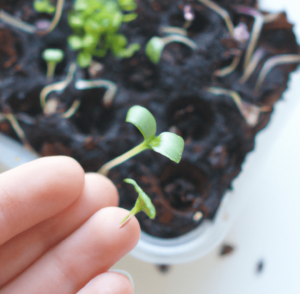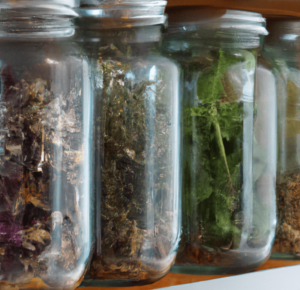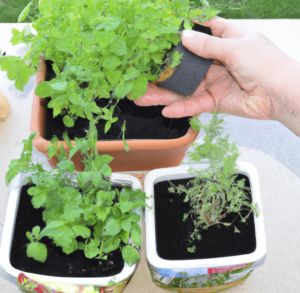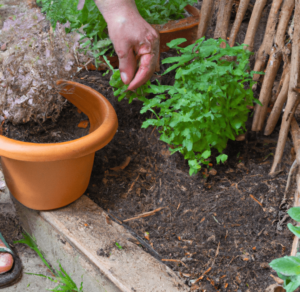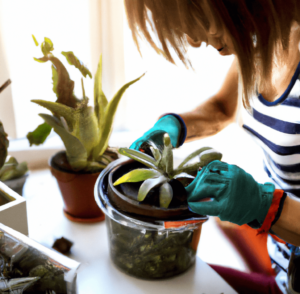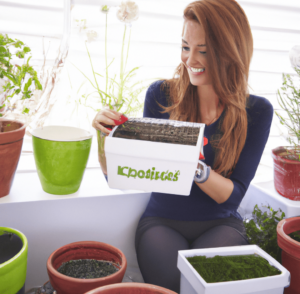Gardening is a beloved hobby for many people, as it allows them to connect with nature and grow their own plants. However, a key element that is often overlooked in gardening is soil. Soil plays a crucial role in the success of a garden, as it serves as the foundation for plants to grow and thrive. In this article, we will delve into the impact that soil has on gardening and how it impacts the water, plants, and gardeners themselves.
The Importance of Soil in the Garden
Soil is a vital component of any garden, as it provides the foundation for plant growth and plays a crucial role in the health and success of a garden. Water, air, and nutrients are all essential for plants to thrive, and soil is the medium through which these elements are delivered to the roots of plants.
Gardeners understand the importance of soil and often take great care to ensure that it is in optimal condition for their plants. This may involve adding compost or other organic matter to improve the structure and fertility of the soil, or adjusting the pH to make it more suitable for the types of plants being grown.
The results of proper soil management can be seen in the overall health and vigor of a garden. Plants that are grown in well-draining, nutrient-rich soil are more likely to thrive and produce abundant yields, while those grown in poor soil may struggle and produce poor results.
For this reason, it is important for gardeners to understand the characteristics and needs of their soil, and to take steps to improve and maintain it over time. Proper soil management is a key aspect of successful gardening and can lead to more beautiful and productive gardens.

Soil Types in the Garden: Understanding the Needs of Your Plants
Soil is a vital component of any garden, as it provides the foundation for plant growth and serves as a medium for water and nutrients. There are many different types of soil, each with its own characteristics and requirements for supporting healthy plant growth. Understanding the different soil types and how they affect the growth of your plants can help you choose the right plants for your garden and ensure that they receive the proper care and nutrients they need to thrive.
Some common soil types include sand, silt, clay, and loam. Sand has large, coarse particles and drains well, but may not retain water or nutrients as well as other types of soil. Silt has smaller particles and a texture similar to flour, and is good at retaining water and nutrients but may drain poorly. Clay soil has very small, dense particles and can be difficult for plants to grow in due to poor drainage and a lack of oxygen. Loam is a combination of sand, silt, and clay and is considered the best type of soil for gardening, as it has good drainage and water retention capabilities and provides a good balance of nutrients for plants.
In addition to these basic soil types, there are also various amendments that can be added to soil to improve its quality and suitability for specific plants. For example, compost can be added to soil to increase its organic matter content, while lime can be added to adjust the pH level and make the soil more alkaline. Understanding the needs of your plants and the characteristics of the soil in your garden will help you choose the right amendments and provide the best conditions for your plants to thrive.
Understanding Soil pH for Plant Growth
Soil pH is an important factor for plants, as it affects the availability of nutrients in the soil. The pH of soil refers to its acidity or alkalinity, with a pH of 7 being neutral. A soil with a pH below 7 is considered acidic, while a soil with a pH above 7 is considered alkaline.
Gardeners and farmers need to be aware of the pH of their soil because different plants have different pH preferences. For example, some plants, such as azaleas and rhododendrons, prefer an acidic soil, while others, such as tomatoes and peppers, prefer a slightly alkaline soil.
Fertilizers can also be affected by soil pH. Different fertilizers are more or less effective at different pH levels. For example, phosphorous, a important nutrient for plant growth, is more readily available to plants in soil with a pH of 6.5 to 7.5.
It’s important for gardeners to test their soil pH and adjust it if necessary. This can be done through the use of pH-adjusting products or by adding specific types of fertilizer, such as sulfur for acidifying soil or lime for alkalinizing soil.
Overall, understanding and managing soil pH is an important aspect of successful plant growth and gardening.
Plant Care: Understanding the Basics
As a gardener, it is important to understand the basic needs of plants in order to ensure their healthy growth and development. One of the most essential factors for plant growth is water. Plants require a consistent supply of water to survive, and the amount and frequency of watering will depend on the specific needs of the plant, as well as the climate and soil conditions in which it is growing.
Soil is another important factor to consider when caring for plants. The type of soil in which a plant is grown can have a significant impact on its health and growth. For example, some plants prefer soil that is more acidic, while others prefer neutral or alkaline soil. It is important for gardeners to understand the specific soil needs of their plants and to adjust the pH of the soil as needed.
In addition to understanding the basic needs of plants, it is also important for gardeners to be familiar with common plant care practices, such as pruning and fertilizing. By providing the proper care and attention, gardeners can help their plants thrive and achieve their full potential.
Gardening
Plants are living organisms that rely on various factors for their growth and survival. One important aspect of plant care is providing them with the right nutrients. These nutrients can come from the soil, water, and air, and can be supplemented through fertilizers.
The soil is a vital component of a garden, as it provides plants with the necessary nutrients and support. The pH of the soil, as well as its composition and structure, can affect the growth and health of plants.
A gardener is responsible for maintaining the garden and ensuring that the plants receive the proper care. This can include tasks such as watering, pruning, and fertilizing the plants.
One type of fertilizer that is commonly used in gardening is aluminum sulfate. This substance is often used to lower the pH of soil, making it more acidic. This can be beneficial for certain types of plants, such as blueberries, which prefer a more acidic soil.
Plant nutrition is the process of providing plants with the necessary nutrients to support their growth and development. This can involve using fertilizers, compost, and other substances to enrich the soil and provide plants with the nutrients they need. Proper plant nutrition is essential for healthy and vibrant plants.
Testing Soil Health
Soil health is an important aspect of agricultural production, as it affects the growth and productivity of crops. There are various ways to test soil health, including both physical and chemical methods. Physical tests involve examining the physical properties of the soil, such as its structure, texture, and porosity. Chemical tests involve analyzing the chemical composition of the soil, including the levels of nutrients and pH.
It is important to regularly test soil health in order to determine any potential problems or deficiencies that may be affecting crop growth. This can help farmers take corrective measures, such as adding fertilizers or adjusting irrigation practices, to improve soil health and enhance crop production. Soil testing can also help farmers make informed decisions about what crops to plant, as different crops have different nutrient requirements.
There are several tools and techniques that can be used to test soil health, including soil probes, soil sampling kits, and lab analysis. It is important to follow proper procedures when collecting and handling soil samples, as this can impact the accuracy of the results. It is also important to consult with a soil specialist or agronomist to interpret the results of soil tests and develop a plan for improving soil health.

The Importance of Proper Soil Health for Plant Disease Prevention
Plants, like all living organisms, have basic needs in order to thrive. One of the most important of these needs is access to healthy soil. Soil provides plants with the nutrients and water they need to grow, and it also serves as the foundation for the plant’s root system. Without healthy soil, plants are more susceptible to various diseases and pests that can weaken or kill them.
One way that soil health can impact plant disease is through its ability to support a diverse and balanced ecosystem of beneficial microorganisms. When the soil is healthy and contains a diverse array of microorganisms, it can help to suppress the growth of harmful pathogens that can cause diseases in plants. In contrast, soil that is poor in quality or lacks diversity can provide a favorable environment for the growth of disease-causing pathogens, increasing the risk of plant disease.
Proper soil management, including activities such as composting, mulching, and proper watering, can help to maintain the health of the soil and support the growth of a diverse and balanced ecosystem of microorganisms. This, in turn, can help to prevent plant diseases and improve the overall health and resilience of plants.
Perfecting Your Sandy Soil
Sandy soil can be a challenging type of soil to work with, but with the right materials and techniques, it is possible to transform it into a thriving, fertile environment for your plants. Here are a few tips for improving sandy soil:
- Add organic matter: Adding materials like compost, well-rotted manure, or peat moss can help improve the structure and fertility of sandy soil. These materials help to hold onto moisture and nutrients, making them more available to plants.
- Mulch heavily: A thick layer of mulch, such as wood chips or straw, can help to retain moisture in sandy soil. It can also help to suppress weeds and keep the soil temperature more consistent.
- Use drip irrigation: Drip irrigation systems can help to conserve water and prevent it from quickly running off sandy soil. By providing a slow, steady stream of water directly to the roots of your plants, you can help ensure that they have the hydration they need to thrive.
- Choose appropriate plants: Some plants are naturally adapted to growing in sandy soil, so consider choosing varieties that are well-suited to this type of environment. Succulents, for example, are often a good choice for sandy soil as they are able to tolerate dry conditions.
By following these tips and using the right materials, you can help to improve the quality of your sandy soil and create a thriving garden or landscape.
Bottom Line: Soil is an Important Factor to Grow Plants and Thrive
Soil is an important factor in gardening because it provides the foundation for plants to grow and thrive. It holds water and nutrients, supports root growth, and anchors plants in place. Different types of soil can have different impacts on the growth and development of plants. For example, sandy soil drains quickly and may not hold enough water or nutrients for certain plants, while clay soil may drain poorly and become compacted, leading to poor root growth. To ensure optimal plant growth, gardeners should choose the right type of soil for their plants and take steps to improve the soil’s structure, such as adding compost or other organic matter. Additionally, it is important to avoid over-watering or over-fertilizing the soil, as this can lead to excess salt build-up or nutrient imbalances that can harm plants. Overall, the impact of soil on gardening cannot be underestimated, as it plays a crucial role in the health and growth of plants.
If you’re interested in what impact does soil have on gardening, you may also be interested in what is the best climate for gardening and what impact does water have on gardening.


